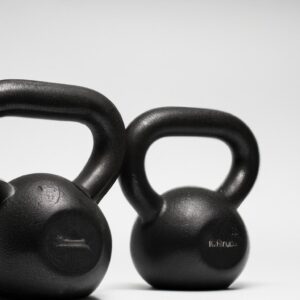**”Micronutrient Deficiencies and Athletic Performance: How Vitamins and Minerals Impact Your Training Success”**
# Micronutrient Deficiencies and Athletic Performance: How Vitamins and Minerals Impact Your Training Success
When it comes to athletic performance, the focus often lies on macronutrients—proteins, fats, and carbohydrates. However, an often-overlooked aspect of training success is the role of micronutrients—vitamins and minerals. These essential nutrients play a vital role in energy production, recovery, and overall health. Micronutrient deficiencies can lead to decreased performance, increased injury risk, and prolonged recovery times. In this blog post, we will explore the relationship between micronutrients and athletic performance, offering insights into how to optimize your nutrition for training success.
## The Importance of Micronutrients in Sports
Micronutrients, though required in small amounts, are crucial for numerous physiological processes that affect athletic performance. They contribute to energy metabolism, immune function, and muscle contraction, among other functions.
### Key Vitamins for Athletes
– **Vitamin D**: This vitamin plays a critical role in calcium absorption and bone health. Athletes with low vitamin D levels may experience increased risk of stress fractures and muscle weakness.
– **B Vitamins**: Including B1, B2, B3, B6, and B12, these vitamins are vital for energy production and red blood cell formation. Deficiencies can lead to fatigue, poor endurance, and compromised recovery.
– **Vitamin C**: Known for its antioxidant properties, vitamin C helps reduce oxidative stress caused by intense exercise, promoting better recovery.
### Essential Minerals for Performance
– **Iron**: Vital for oxygen transport in the blood, iron deficiency can lead to anemia, resulting in decreased stamina and performance.
– **Calcium**: Important for muscle contractions and bone strength, calcium deficiency can increase the risk of injuries.
– **Magnesium**: Involved in over 300 biochemical reactions, magnesium supports muscle function and energy production. Low levels can lead to cramping and fatigue.
## Nutrition Tips for Athletes
To ensure optimal performance, it’s crucial to maintain a well-rounded diet rich in micronutrients. Here are some practical tips:
1. **Eat a Colorful Diet**: Incorporate a variety of fruits and vegetables to ensure you’re getting a broad spectrum of vitamins and minerals. Different colors often represent different nutrients.
2. **Focus on Whole Foods**: Opt for whole grains, lean proteins, and healthy fats. Processed foods tend to be lower in micronutrients.
3. **Consider Timing**: Nutrient timing can be important. For example, consuming vitamin C-rich foods post-workout can help aid recovery.
4. **Hydration is Key**: Micronutrients often depend on hydration for optimal absorption. Ensure you’re drinking enough water throughout the day.
## Exercise Advice for Maximizing Micronutrient Benefits
While nutrition plays a crucial role in athletic performance, the way you train can also impact your micronutrient status.
### Balanced Training Regimen
1. **Incorporate Variety**: Different types of exercises (strength training, cardio, flexibility) can impact your body’s nutrient needs. A well-rounded approach helps maintain micronutrient balance.
2. **Rest and Recovery**: Allow for recovery days in your training schedule. This not only helps prevent injury but also allows your body to replenish essential nutrients.
3. **Listen to Your Body**: Pay attention to signs of fatigue or decreased performance, which could indicate a deficiency. Adjust your diet or training load accordingly.
## Health Benefits of Micronutrients
Beyond athletic performance, an adequate intake of vitamins and minerals can lead to numerous health benefits that enhance the quality of life.
1. **Improved Immune Function**: Vitamins and minerals like vitamin C, zinc, and selenium play crucial roles in supporting the immune system, helping athletes fend off illness.
2. **Enhanced Recovery**: Antioxidants can help reduce inflammation and oxidative stress, speeding up recovery after intense training sessions.
3. **Optimal Bone Health**: Adequate calcium and vitamin D intake can help maintain bone density, reducing the risk of fractures and osteoporosis in the long term.
## Conclusion
In conclusion, micronutrient deficiencies can significantly impact athletic performance, affecting energy levels, recovery times, and overall health. By prioritizing a diet rich in essential vitamins and minerals, along with a balanced training regimen, athletes can optimize their training success and enhance their performance. Remember, every aspect of nutrition matters—ensuring you meet your micronutrient needs can make all the difference in achieving your athletic goals.















Post Comment